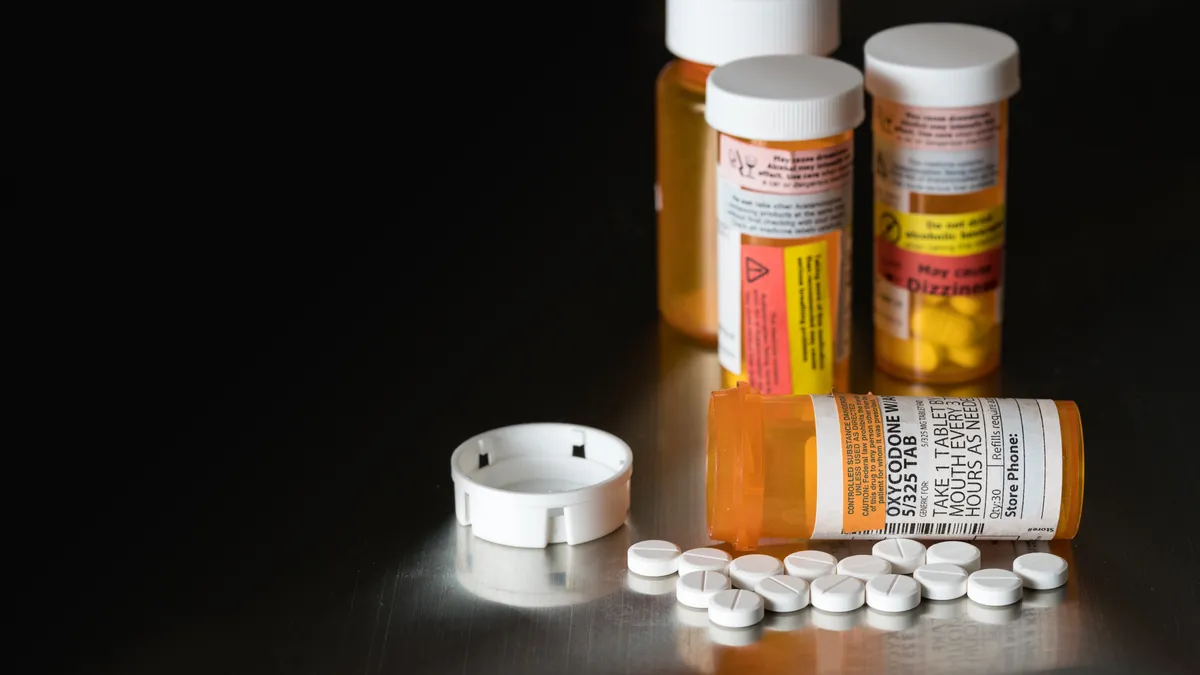Dive Brief:
- Three-quarters of U.S. employers said they have been directly affected by employee opioid use, but only 17% said they feel "extremely well prepared" to deal with it, according to a new study from the National Safety Council (NSC).
- More than a third (38%) said they have experienced absenteeism or impaired worker performance because of opioid use and 31% reported an overdose, arrest or an injury because of opioid use.
- Still, 41% of respondents said they would allow an employee to return to work after he or she received treatment for opioid misuse. NSC conducted 526 online interviews on opioid-related issues with HR decision-makers, safety professionals and managers at U.S. companies with 50 or more employees.
Dive Insight:
In separate survey results released last week, Willis Towers Watson found that employers are slow to act in the face of this growing problem. A majority of employers (55%) said they have no plans to focus on opioid abuse, while 23% said they're considering initiatives to prevent abuse in 2020 or 2021.
For employers looking to address the problem, a good starting place is a claims data analysis, National Business Group on Health (NBGH) President and CEO Brian Marcotte, previously told HR Dive in an interview.
NBGH also has recommended that employers work with pharmacy benefit managers to ensure their health plans conform to national guidelines for opioid prescriptions and check health plans for policies that require doctors to engage in best practices for prescribing opioids.
In an opinion piece for HR Dive, Dave Chase, the co-founder of Health Rosetta, said employers have been contributing to the opioid crisis by paying too much for poor benefits and suggested that employer-provided health insurance can prevent addiction before it starts by moving from the current fee-for-service model into value-based care models. And HR can help employees to get the most of a new healthcare system by holding benefits workshops and webinars and providing coverage information online and via print handouts, Chase said.











